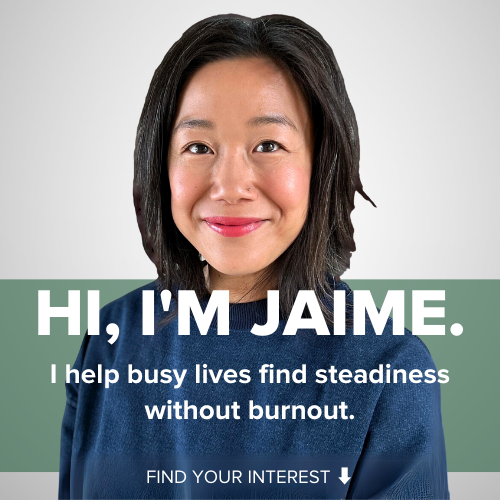Sleep Series, Part 1 - How to Get a Better Night’s Sleep + Prevent Insomnia
/Getting a good night’s sleep is one of the keys to good health. Since so many of us suffer from some variation of “not getting enough sleep” these days, I’ve created a 5-part sleep series to help you tackle this.
This is Part 1: How to get a better night’s sleep and prevent insomnia.
Check back for the other 4 parts which will cover the following:
Part 2: Foods that help sleep.
Part 3: Foods that hinder sleep.
Part 4: Natural supplements that help sleep.
Part 5: Guided meditations that help sleep.
The odd sleepless night or two may not seem to affect day-to-day life, but chronic, long-term insomnia or disturbed sleep can become debilitating for your health. Sleep is essential for vital bodily functions such as tissue growth and repair and restoring energy levels.
Optimum Sleep:
The optimum amount of sleep for healthy adults is between 7 - 8 hours per night on average, but the quality of sleep is more important than the quantity. 6 hours of uninterrupted sleep will leave you more refreshed than 9 hours with frequent waking.
Your genes also help determine if you may need more or less sleep than the average person, as well as your circadian rhythm (your internal clock).
Your DNA affects whether you’re a night owl or early bird, as well as how many hours of sleep you need to “feel normal”.
Sleep Hygiene - What is this?
The term we use to describe a variety of practices and habits that are crucial to having a good night’s sleep is called “sleep hygiene”.
Here are 15 sleep hygiene practices you can incorporate to help improve your sleep:
1. Turn Off Gadgets
Your bedroom is a peaceful space for inviting sleep (and sex), so don’t fill it with technology like computers, TVs or mobile phones.
Don’t watch TV or work on your laptop in bed as these activities will keep your brain from winding down in preparation for sleep.
The bright lights emitted from devices also prevent melatonin release, a hormone required to induce sleep.
So remove all screen time one hour before bedtime to allow your brain to naturally start to produce melatonin, helping you wind down and feel sleepy.
2. Clear Your Mind
If you have circling thoughts that keep your mind active before bedtime, try the following:
Journal. Keep a notebook and pen next to your bed. Use it to write down all the thoughts you’ve got as this can help clear your mind, leaving you more readily able to embrace sleep.
Meditation. Use meditation techniques for relaxation and to help you fall asleep. Read part 5 of this sleep series, or this post on how to start with meditation.
3. Circadian Rhythm/ Sleep Routine.
Stick to the same bedtime routine every night, no matter how little you’ve slept: going to bed and rising at the same time everyday helps to re-establish good sleep patterns. Do this even on the weekends to keep the circadian rhythm going.
On weekends, it’s better to keep to the same asleep/ awake times and include an additional 15 - 20 minute afternoon nap if you feel you need more rest.
4. Relaxation
A warm bath before bed helps soothe and relax soothing, aching muscles.
Brush your teeth before the bath, so you can get straight into bed after.
Add lavender bath oils.
Add epsom salts. The magnesium it contains helps to relax muscles. Dissolve 1 - 2 cups in hot bath water and soak in the bath 20 minutes before bed.
5. Lavender
Lavender has been shown to improve sleep quality by 20%.
Some ideas for how to use lavender:
Place a lavender sachet/ spray lavender oil under your pillow.
Use a few drops of lavender essential oil in an oil burner/ diffuser to diffuse the room.
Use aromatherapy roller balls on your pulse points before bedtime. Try Tisserand’s huge assortment for better sleep (Lavender, Camomile or Sweet Dreams), or Neal’s Yard “Remedies to Roll for night time”.
6. Don’t Do Rigorous Exercise At Night
Exercise is essential for good health, but not high intensity/ rigorous exercise at night, before going to bed. Doing so keeps the bodily functions moving at a more intense pace, preventing you from winding down. Avoid rigorous exercise at least 4 hours before bedtime.
A better form of evening movement would be something like Yin yoga - a more meditative style of yoga where you hold the poses for up to 5 minutes, getting into the deeper layers of connective tissues, helping to release physical tension.
You could also try my 5 easy yoga poses to help de-stress, which are calming before bedtime.
7. Don’t Drink Fluids After 7pm
If you tend to take frequent toilet breaks in the middle of the night, try to avoid drinking fluids after 7pm.
Do this for at least 2 weeks to see if it helps prevent the middle-of-the-night toilet breaks. It may take a few days for your body to adjust to a new pattern, so allow yourself this time.
Remember to rehydrate with a big glass of warm water when you wake up!
8. Don’t Fight the Insomnia
If you’re the kind of person who tends to have trouble falling asleep again after middle-of-the-night toilet breaks, don’t fight it.
Allow yourself some time before falling asleep again. If after 15 minutes you still have circulating thoughts or anxiety about not being able to sleep again, get up and allow yourself a half-hour of not sleeping:
Read a book, journal your thoughts - but don’t check your mobile phone nor watch TV. Keep all screens off.
You could also get out of bed and meditate, using any of the suggested apps in this post. Give your mind a break away from the anxious thoughts of “I need to go back to sleep”.
Side Note: Did you know back in the day, it was very common for people to have “two sleeps”? After about 3- 4 hours of sleep, they would wake up and have 1 - 2 hours of activities like praying/ chopping wood/ having sex before falling back to sleep again for another 4 hours.
This “bi-phasic sleep” was very common and culturally accepted. So take heart that this was ‘normal’ and what we used to do before.
9. Caffeine
No caffeine (including green tea) after lunch time - drink herbal teas in the afternoon: camomile, lavender, valerian, passionflower.
More on this in part 3 of this Sleep Series.
10. Light
Ideally, your bedroom should be totally dark for optimum sleep. Blackout curtains or using an eye mask are options.
Darkness triggers production of melatonin, the hormone that induces sleep. Light causes melatonin levels to drop.
So if you go to the toilet in the middle of the night, don’t turn on any lights to help maintain a high level of melatonin to help you fall back to sleep again.
11. Ear Plugs
If noise wakes you easily, use ear plugs which help dim out excessive noise.
Wax ear plugs are particularly effective or silicone or soft foam earplugs.
12. Temperature
Keep the bedroom cool at an ideal room temperature of 18 degrees Celsius.
Fresh air encourages sleep too, so leave a window open for ventilation.
13. Nightwear
Be comfortable when sleeping! Ensure nightwear is loose and comfortable to enable air flow which can help reduce overheating. Cotton materials are best.
14. Mattress
The average person spends 25 years in bed. About ⅓ of your day is spent in bed.
Investing in a good quality mattress is a priority. Memory-foam mattresses like the Tempur-pedic are a good investment.
15. Bedding
Cotton or linen bedsheets absorb more moisture and are more comfortable than synthetics.
Use Multiple Approaches
These sleep hygiene practices alone may not help improve your sleep. A “multiple ways” approach using all the tools and practices in this sleep series would likely bring about a higher sleep success rate.
As everyone works differently, try as many of these recommendations as you can until you find something that works for you. Also know that what could work for you today may not work for you another day, since so much depends on other external factors happening in your life at the time.
Make A Plan
What can help is the next time you find yourself going through a busy period and sleeplessness hits, pick just ONE thing you’ll do from this list every night… and by the end of a work-week, you would have 5 new and different things you would have put into practice to help you get a better night’s sleep.
Guided Sleep Meditation
I’ve recorded a handy sleep meditation for you… it’s about 12 minutes in length. Download it here and put it on as you drift off to sleep:
Stay tuned next week for my Sleep Series - Part 2 on the foods that can help you get a better night’s sleep.
Enjoyed these tips? Get more tips like this from me every month on how to stay fit, healthy and happy especially when you’re on a time-crunch.
It’s called 5 Good Things To Share! Click below to get it.
You might also be interested in these previous articles:













